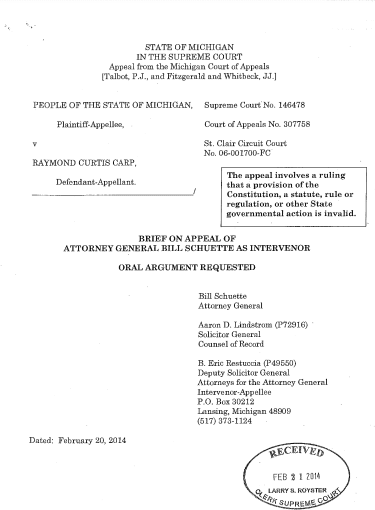
Summary of Argument
The Miller decision does not apply retroactively under Teague v Lane, 489 US 288 (2012), to cases that were final on direct review.
In determining whether a decision of the United States Supreme Court applies retroactively to cases that were final on direct review, this Court employs a two-step process. See Maxson, 482 Mich at 388-393. First, the Court examines whether the rule must apply retroactively under federal law as defined by Teague. Maxson, 482 Mich at 388. Second, the Court determines whether the rule should apply retroactively under state law, relying on the three factors under People v Sexton, 458 Mich 43, 60-61; 580 NW2d 404 (1998). Maxson, 482 Mich at 393.
Under the Teague analysis, the Miller decision is a new rule that is procedural in nature, and is not a watershed rule. Thus, it does not apply retroactively. Carp relies on the fact that the U.S. Supreme Court applied Miller to Kuntrell Jackson, whose case appeared on collateral review. But this issue was not joined because the State of Arkansas waived any claim about retroactivity under Teague by failing to raise it. The Miller Court did not address the issue of retroactivity. Carp's other arguments are also unavailing.